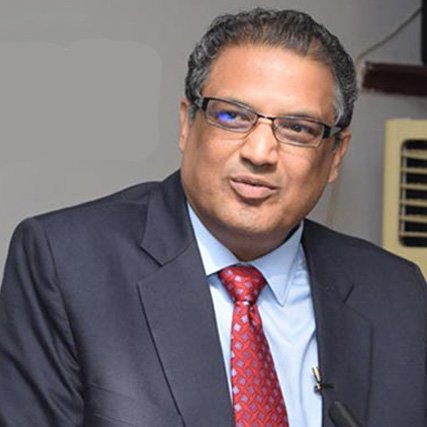Fame is a double-edged sword, on the one hand it is a gift from God which few people are blessed with, on the other hand it is such an addiction that it does not end well if it is taken. A person who gets immense fame does not think himself right and his opponents wrong, he believes that the real reason for his fame is that he is right, and thus he becomes convinced that his opponents must be right. are fundamentally wrong. In fact, this change in understanding is the addiction that big and famous people fall victim to, although if the fame is taken care of, it becomes the favorite of the people, the favorite of God, but the addiction of fame climbs on the mind like this. That makes mistakes upon mistakes and ultimately these mistakes bring down this most famous person.
Today, those riding the bigoted horse of fame need to keep their reins tight. In the mid-1930s and 1940s, the Khaksar movement was on the rise in India in general and in Punjab in particular. Muslims wearing khaki clothes and carrying shovels paraded quietly in every city and every village. Allama Inayatullah Mashriqi (1888-1963), the founder of the Khaksar movement, was a great mathematician, graduated with honors from Cambridge University in the UK and returned to India and started the holy mission of Muslim renaissance. He was very popular among all Muslims. The heroes knew that he wrote a book called Tazkirah and was nominated for the Nobel Prize because no one had a say in his intelligence, his fame and his hard work day and night. Millions of people used to join his gatherings. Allama was also punished with flogging. Everything was going well that they decided to clash with the British establishment in Lahore on March 19, 1940. As a result of this wrong decision, 32 people were bathed in blood, according to some people, the number was in hundreds. Apparently, due to this incident, the Khaksar movement should have become stronger, its fame should have increased, but the opposite happened, and this incident became the starting point of the decline of the Khaksar movement. Only 3 days after this incident, Quaid-e-Azam came to Lahore, visited the injured of the Khaksar Movement and then held a peaceful gathering of thousands of people in Minto Park without clashing with the establishment, passed the Pakistan Resolution and thus the foundation of Pakistan was laid. An incident of violence in the same week of March 1940 marked the decline of the Khaksar movement and a peaceful gathering in the same week laid the foundation for the popularity of the Muslim League and Jinnah in Punjab.
The examples of Fatibaro or Auli al-Absaar (the ones with eyes, take lessons) do not necessarily lead to revolution by shedding blood. In Kufa, the city of power, those who bring a storm in the cup of tea today believe that if the blood of the protestors is spilled in the PTI protest, there will be a revolution in the country, the people will rise up and the government will not be able to stand. But sometimes the bloodletting has the opposite effect of the 1940s movement. Similarly, in Jallianwala Bagh in 1919, hundreds of people were blinded by bullets (according to modern research, their number was more than two hundred). were gone The test of a popular leader is to not allow violence to enter into his strategy or the movement is hijacked.
If you look at the international scene, there too, the addiction of fame has consumed the adults. Germany’s Adolf Hitler (1889-1945) is notorious today, but at one time his parrot spoke in Germany. Daya, his slogans against world exploitation and Zionist ambitions were so popular that when he spoke at a rally, women would burst into tears and even throw their jewelry at Hitler in excitement. There was a time that not a single voice could be raised against Hitler in the whole of Germany, whether the generals or the parliamentarians all believed him to be a god, but then this fame got to his mind and he planned to conquer the world. Done, the last mistake was attacking Russia. When misfortune began, defeat after defeat began, the Russian forces approached Berlin, Hitler took refuge in a bunker, but the hero’s intoxication did not leave there. One of the flaws of the hero is that he does not accept defeat and does not have the courage to overcome adversity to be normal, eventually committing suicide by shooting himself and his lover Eva Braun. Where did that fame, power and self-esteem go? If there had been negotiations, if there had been no aggression, if he had not made everyone his enemy, Hitler would not have ended up like this.
At one time there was a great romance in India about Mussolini (1883-1945). Mussolini was the Prime Minister of Italy for 21 years. Built, Hitler and Mussolini both had charisma, both were great orators, both possessed authoritarian thinking, both were convinced of expansionist patriotism. Mussolini’s fate was that he was shot dead by an angry mob. Even in the Muslim world, such popular and famous people did not end well.
Nowadays, the fight for fame and power is going on once again in Contradistan, on October 15th, it is not known whether this match will happen or cool down, but it is certain that PTI has been protesting since May 9th. The way it is going has not ended well in history. Maybe Tehreek-e-Insaf will really bring about a revolution through people’s power, but if it doesn’t, as it has done in the past, then PTI will have to suffer the consequences. In my personal opinion PTI should be treated leniently, founder PTI should get concessions despite its aggressive policies, state should treat it sympathetically but the thinking of state and power is not like mine. would have If the buffalo of power is shown the red cloth of violence again and again, it attacks with rage, I wish it wasn’t like that. History is written, but it is as clear as day, why don’t the policymakers of Tehreek-e-Insaf read the writing on the wall, why are they repeatedly showing red cloth to the buffalo of power? Political parties are not able to withstand the onslaught of the state, fame is a great thing but it is harder to win than power.
Note: This is the translation of his Urdu column published in Jang
 Colors
Colors  View Books
View Books 



